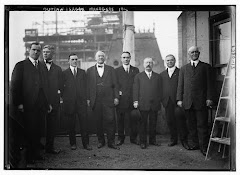 Reviewer: Elle Ewok
Reviewer: Elle EwokRating: 4 Raisin Pierogies (good but not for everyone)
Review: Although my love for classic Russian literature is well-documented on this website, I have virtually no exposure to contemporary Russian authors. Indeed, the most "current" Russian author I had read (prior to reading this book) was Nabokov and he died in 1977. My younger brother, who is fluent in Russian and has lived there twice, gave me The Slynx for Christmas telling me that its author is one of the most well-respected contemporary Russian authors.
She should be, her great-uncle is Leo Tolstoy for God's Sake! That's quite a literary pedigree. The Slynx is a dystopian novel written in 2007 (in Russian) by Tatyana Tolstaya and it is her first novel. It takes place in Moscow (or what used to be Moscow) two hundred years after some undefined apocalyptic event which involved large amounts of radiation. The government is run by a succession of petty despots who rename the city after themselves. The population is small and lives in extremely desolate and harsh conditions (think the slavic middle ages). They (almost) all suffer from strange physical deformities and mutations from the radiation exposure and they are all complete morons. They are superstitious, cruel, violent and just extremely dumb. It it not explained whether the population's idiocy is the result of having to start civilization from scrtach or because of the radiation. I'm guessing it's the radiation.
The source of food, clothing and commerce in society are mice. Books are prohibited and the current ruler plagerizes the old Russian literary masters and claims their writings as his own. The Slynx is narrated by Benedikt, one of the despot's scribes. Benedikt eventually discovers books and falls completely in love with them although he is unable to derive any meaning, philosophy or morality from them.

I really really enjoyed this book but I would only recommend it to certain people. It feels exceedingly ....foreign. This is a book seeped in Russian history, Russian politics, Russian literature, written by a Russian for Russians. From an American perspective, the language is odd, the setting is odd, and the writing is odd. I am certain I missed much of the meaning of this book because of my limited knowledge of Russian political history. That said, the world Tolstaya created fascinated and amused me to no end. There is a ton of dark humor in this book originating mainly from the idiocy of the characters. In fact the entire premise is darkly funny. Here is a culture that has not yet figured out fire and has only recently discovered the wheel yet somehow it managed to retain all the hyper-beauracratic machinery of the Soviet Union. It's rather hilarious. Additionally, this is a very literary book. The writing is artisitic, unique and profound. Readers who enjoy studying the craft of writing itself will appreciate this book. Although I enjoyed this book immensly personally, I can understand totally why most people probably would not. It is dark, dreary and depressing. The characters are virtually all unlikeable including the narrator. There isn't really much in the way of plot for the first 75% of the book and the ending is one of those vague, metophorical endings that can (understandably) frustrate readers. It is also a really dense book. It took me a long time to read even though it is a relateively short 275 pages. Our narrarator likes to go on long stream of conscious diatribes, that I'm sure have lot of symbolic meaning, but are challenging to interpret and can get a bit taxing.
My feelings on the end are mixed. The truth is I don't really "get" the ending (although superficially I liked it) so I can't say whether I truly liked it or not. I hope someone else will read this book so I can discuss to with them. That said, the ending didn't negatively affect my good feelings towards the rest of the book so I consider that a success. Also, my Liberatrian impulses were gratified as this book offers a scathing critique of statism (or maybe not - that is just how I interpreted it). While, it may sound good to give the goverment the power to pull all resources out of the economy so it can be distributed "fairly" to the population - this book points what history has proven over and over again. A corrupt bureaucracy and/or political class inevitably develops that keeps all the good stuff to themselves while throwing scraps in their discretion to the population. The result? No motivation to achieve on the part of the population, stunted cultural and moral development and a lower standard of living for everyone - rich and poor alike. But, hey, at least no one will feel bad if their neighbor has a better car because no one will have a car. Okay - gratuitous libertarian rant of the day ended.
If you enjoy dark, weird stories this book will hit the spot. If you are patient and like heavy literary books this will work for you as well. If you don't like either of these things you should probably read something else. For what it is worth, I loved this book.


No comments:
Post a Comment